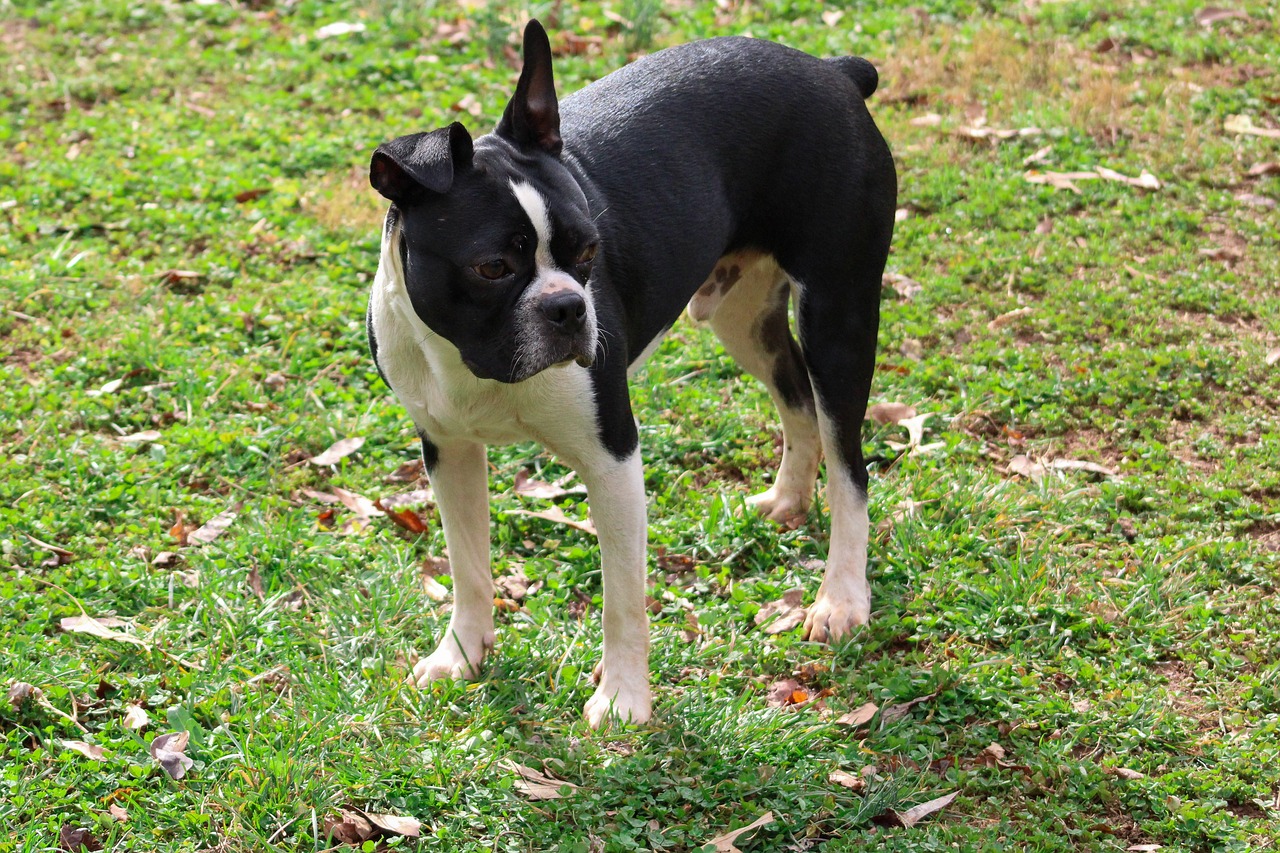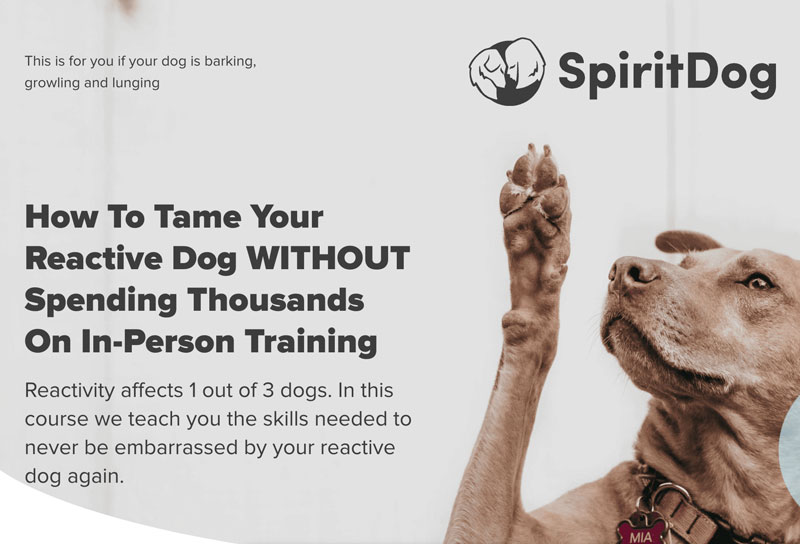
Barking is a common behavior among dogs, but excessive barking can be problematic, especially when it comes to reactive barking. Boston Terriers are known for their loving and playful personality, but they can also be prone to reactive barking. Reactive barking is often triggered by certain stimuli such as strangers, other dogs, or noises. In this article, we will explore 10 strategies to help your Boston Terrier stop reactive barking. By understanding the reasons behind their barking and implementing the right techniques, you can help your dog become less reactive and more relaxed in their environment.
⚠️ Note: While the tips below should get you started, it’s important to realize that your Boston Terrier’s excessive barking is symptom of reactivity. Consider looking into an online training course that specifically addresses reactivity (we like SpiritDog’s “Tackling Reactivity course or K9 Institute’s Dog Masterclass)
1. Identify and Understand Your Boston Terrier’s Triggers:
The first step to addressing reactive barking is to identify the specific triggers that cause your Boston Terrier to bark. Observe your dog closely to determine what situations or stimuli provoke their barking, such as encountering other dogs, strangers approaching, or loud noises. Once you understand the triggers, you can develop a targeted plan to address the issue.
2. Desensitize Your Boston Terrier to Triggers:
Desensitization is a gradual process that involves exposing your Boston Terrier to its triggers at a comfortable distance, allowing them to become more accustomed to the stimulus without reacting. Over time, you can slowly decrease the distance between your dog and the trigger, always rewarding calm behavior. This process helps your dog become less reactive to the trigger, ultimately reducing their barking.
3. Use Counter-Conditioning with Your Boston Terrier :
Counter-conditioning is another technique that can help change your Boston Terrier’s emotional response to a trigger. By pairing the trigger with something positive, such as treats or toys, your dog can begin to associate the stimulus with a positive experience rather than fear or anxiety. Over time, this can reduce your dog’s reactive barking.
4. Use Positive Reinforcement with Your Boston Terrier:
Reward your Boston Terrier for remaining calm and quiet in situations where they would typically react with barking. Consistently offer praise, treats, or affection when your dog displays appropriate behavior in response to their triggers. This positive reinforcement helps your dog learn that there are better ways to cope with their triggers than barking.
5. Teach Your Boston Terrier the “Quiet” Command:
Train your Boston Terrier to understand and respond to the “quiet” command. When your dog starts barking in response to a trigger, calmly say “quiet” and wait for them to stop. As soon as they are silent, immediately praise and reward them. Repeat this process consistently until your dog associates the command with the desired behavior.
Related: What online dog training program does iHeartDogs recommend for reactive barking?
6. Redirect Your Boston Terrier’s Attention:
When your Boston Terrier begins to bark reactively, try redirecting their attention to a more productive activity. Offer a favorite toy, initiate a training session, or engage in play to refocus their energy. This helps your dog learn that there are alternative ways to react to stimuli, rather than barking.
7. Provide Adequate Exercise and Mental Stimulation for Your Boston Terrier:
A well-exercised and mentally stimulated Boston Terrier is less likely to engage in reactive barking. Ensure your dog receives enough physical activity and mental stimulation daily through walks, play sessions, and interactive toys. This can help reduce pent-up energy and frustration, which can contribute to reactive barking.
8. Create a Calm Environment for Your Boston Terrier:
A chaotic or noisy environment can exacerbate your Boston Terrier’s reactive barking. Create a calm and quiet space for your pet, with a comfortable bed and designated area for their toys. Use calming scents, like lavender or chamomile, and soothing sounds, such as classical music or white noise, to help reduce anxiety and promote relaxation.
9. Manage Your Boston Terrier’s Environment:
While you work on addressing your Boston Terrier’s reactive barking, consider managing their environment to limit exposure to triggers. This may involve using window films to obscure your dog’s view of passersby, creating a designated “safe space” for your dog to retreat to, or using baby gates to restrict access to areas with high trigger exposure. Managing your dog’s environment can help reduce their reactive barking while you work on implementing other strategies.
10. Try an Online Dog Reactivity Training Course
If your Boston Terrier’s reactive barking continues despite your efforts, consider consulting with a professional dog trainer or behaviorist.
2 online dog training programs we like are:
1. SpiritDog’s “Tacking Reactivity” Course
The SpiritDog Tackling Reactivity Course is an online training program designed to help dog owners address their dog’s reactive barking without the need for expensive in-person training. The course aims to help owners understand their dog’s triggers and teaches techniques to calm and accommodate reactive dogs. Developed by experienced dog trainer Steffi Trott, the program offers video lessons, instructional PDFs, quizzes, and access to trainers for support.
2. K9 Training Institute’s “Dog Masterclass”
More than just an obedience course, this more comprehensive training course tackles any behavior problem you might face with your dog.
10 Reasons Why a Boston Terrier Might Be Reactive Barking
- Fear or anxiety: Boston Terriers may bark in response to things that make them feel uneasy, such as unfamiliar people, animals, or loud noises.
- Territoriality: Boston Terriers may bark to protect their home or their family members.
- Playfulness: Boston Terriers are known for their energetic and playful nature, and may bark in excitement during playtime.
- Attention-seeking: Boston Terriers may bark to get their owner’s attention or to demand playtime or treats.
- Separation anxiety: Boston Terriers may bark excessively when left alone or separated from their owners.
- Medical issues: Boston Terriers may bark due to pain or discomfort caused by medical conditions such as dental problems or arthritis.
- Breed tendencies: Boston Terriers were originally bred as hunting dogs and may have a strong prey drive, leading them to bark at small animals or birds.
- Lack of socialization: Boston Terriers that have not been socialized properly may become reactive and bark at strangers or other animals.
- Training issues: Boston Terriers that have not been trained properly may bark excessively due to lack of discipline or inconsistent rules.
- Genetic predisposition: Some Boston Terriers may have a genetic predisposition to barking excessively, regardless of training or environmental factors.
In conclusion, reactive barking in Boston Terriers can be a frustrating behavior for both the owner and the dog. Understanding the reasons behind this behavior is crucial to finding effective solutions. Whether it’s barking at strangers, other dogs, or simply for attention, there are several strategies that can help curb this behavior. Implementing positive reinforcement techniques, exercise and socialization, and training focused on reducing anxiety and stress can all be effective in addressing this issue. With patience, consistency, and the right approach, it is possible to help your Boston Terrier become a more relaxed and well-behaved member of your household.
NEXT UP: Can an Online Training Course Help Stop My Boston Terrier’s Barking?



 Toledo, United States.
Toledo, United States.